On Saturday is elected in Afghanistan after a long delay a new Parliament. In spite of terrorist threats and shortcomings, there is also optimism that “normal” policy is possible.
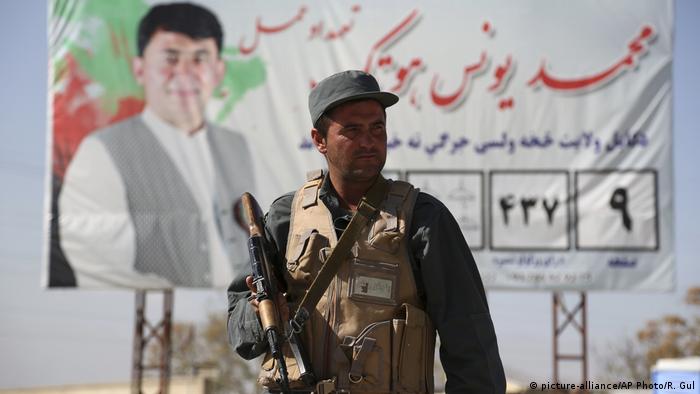
In the parliamentary elections on Saturday it is the third in Afghanistan since the fall of the Taliban regime in 2001, 2005 and 2010. Thus, the current urn is held in gear with three and a half years late. All of the parliamentary and presidential elections in Afghanistan, which should actually be under the auspices of a “democratic reconstruction”, were marred by falsifications, and irregularities.
Especially the re-election of President Karzai in 2009, is a particularly blatant example of massive manipulation in the bad memories. The last parliamentary election in 2010, disappointed the expectation of a democratic new beginning, not least because many of the former Warlords, and other controversial persons were able to secure seats.
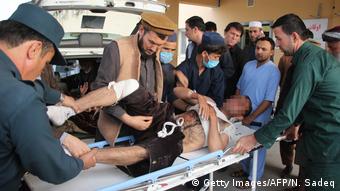
One of the many in attacks on election rallies injured civilians
Elections under terror threat
Now, therefore, be once again made an attempt to establish a credible and effective Parliament, which has the support of the population, also as a message to the Taliban. These have, however, made it clear that they see the elections as a “pseudo-event to the Power of the puppets of the Americans” and everything we want to do, to sabotage the electoral process, allegedly “in cases of extreme preservation of life and property of Afghan civilians.”
According to UN figures, came alone in the first month after the start of voter registration in April of this year, 86 civilians by attacks have killed. Before the start of the 20-day election campaign period the end of September, five candidates were murdered, at least four were kidnapped more after the start of the election campaign, two more. The worst attacks of the recent time to go to the account of the IS in Afghanistan.
Due to the poor security situation be opened from the originally planned approximately 7300 choice centers (several polling stations) throughout the country, only about 5000, are also held in two provinces (Ghasni and Kandahar) and ten districts, including five in the province of Helmand, which are completely under the control of the Taliban, no elections. More than 50,000 security forces to build in the remaining polling centres, each with a three-way security perimeter
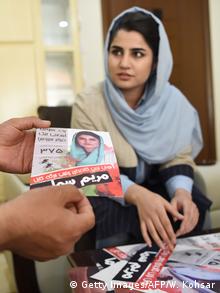
Can offer young female members like Maryam Sama Warlords and Dschidahisten Paroli?
Quotas and the electoral system
The 250 seats in the lower house (Wolesi Jirga) apply approximately 2500 men and women (about 400), the exact Numbers are unclear. Of the 250 Seats 68 are reserved for women. Ten seats are for the almost 170,000 nomads, a seat is reserved for the tiny minority of Hindus and Sihks.
The 34 provinces to send according to their population, a certain number of members. The largest group, 33 in number, comes from the capital, Kabul, and 14 adjoining districts. The Eastern province of Ghasni not take part in the election. There are still the proportions between the national minority of Hasara in Ghasni in the majority and the other ethnic groups in the province must be clarified.
Parties play in the Afghan System, a minor role. Eight percent of the candidates have to register as a member of a political party to register. This does not come with a list in the elections, which means that all of the candidates as individuals in their own right in the race. The formation of political groups in the Parliament is not banned, played so far, but no matter.
On a Problem for a democratic new beginning, in this connection, the political scientist Faiz Mohammad Zaland, of the University of Kabul, points out: “The main parties are under the leadership of former Warlords like gulboddin Hikmatjar and Rashid Dostum, the democracy and human rights a little at the hat.”
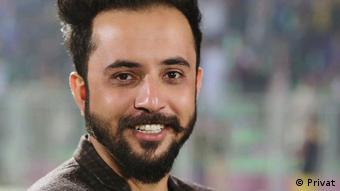
Parliamentary candidate Javid Faisal, from Kandahar. The election will be postponed, however, after the latest attack.
Hope for generational change
Foreign observers and experts of the country, such as Markus Potzel, the special representative of the German government for Pakistan and Afghanistan, continue their hope to a new Generation of aspiring politicians, which could make for a fresh start. Around two-thirds of the candidates are under 40 years old, said a spokeswoman for the independent election Commission, compared to the DW.
A well-known former Journalist, Samiullah Mahdi, believes that his experience as a political Reporter be him in good stead, should he be in his constituency, Kabul, elected. “Afghanistan’s young Generation has played an important role in the development of the media. If these people get a Chance, you can also develop the political institutions of the country,” says Mahdi, compared to the DW.
Also, Javid Faisal is one of the more optimistic young politicians. He gave up his Job as a spokesman for the government business leader, Abdullah. “My home province of Kandahar needs a better representation in the Parliament,” he says in justification. What he could not see before: In Kandahar, the vote was postponed on Friday after the assassination of the country’s powerful police chief.
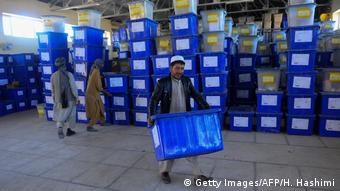
Hopefully it will not give too many false-stocked baskets with ballot papers
The shadow of corruption and forgery
Despite the optimism of many young candidates also depends on this choice, the shadow of corruption and forgery. It starts with the registration of voters. The number of officially reported approximately 8.9 million registered voters, according to the experts at the Afghanistan Analysts Network “to good to be true.” In particular, the fact that provinces with much lower security than in Kabul a higher registration has been reported from the capital, makes more than skeptical. And that vote-buying was also in these elections, in the run-up to the agenda, reported by the DW in June.
“It is important that the election results for the population are unacceptable, that is, that electoral fraud possible is limited”, so the expectation of the EU Ambassador in Afghanistan, Pierre Mayaudon. The EU itself is sent, however, only three election observers to Afghanistan, in order to assess the Fairness of the elections. Overall, the presence of international election observers, according to AAN as low as never since 2001.
However, intra-Afghan organizations want to send about 6500 election observers. The support provided by the government still seemed to be at the beginning of October to be not necessarily given, as Yusuf Rashid from “Free and Fair Election Forum of Afghanistan,” told DW: “to send, organisations like ours are still waiting for the promise of support from the government to thousands of observers in the various election centres. We will try to have our volunteers in the field, but a proper control, whether the choice is correct, it will not give.”